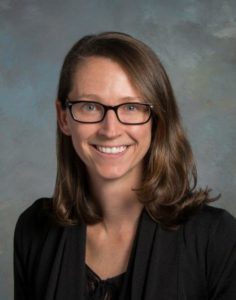
Assistant Professor of Earth and Environmental Sciences Pamela Grothe
Assistant Director of Earth and Environmental Science Pamela Grothe discussed research on the lack of green spaces in redlined communities in Virginia on “With Good Reason,” which aired Saturday, May 22 through Friday, May 28. With Good Reason airs Sundays at 2 p.m. on Fredericksburg’s Radio IQ 88.3 Digital and at various times throughout the week on stations across Virginia and the United States. Check the website for show times.
Planned Destruction: It’s difficult to imagine that the highway was someone’s home. But it was. LaToya S. Gray (Virginia Commonwealth University) says a once thriving Richmond neighborhood known as the Harlem of the South fell victim to intentionally destructive city planners. And: You don’t have to look far to connect racial inequities to environmental issues. Jeremy Hoffman (The Science Museum of Virginia) says that many formerly redlined neighborhoods experience up to 16 degree hotter days in the summer than green lined neighborhoods within walking distance. Aside from jumping in a pool, trees are our best bet to cool summer heat.. Pamela Grothe (University of Mary Washington) says we have to be intentional about putting trees in the right places.